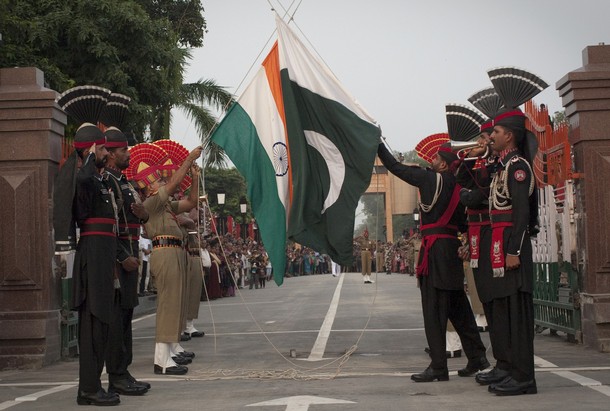This week, a delegation consisting of heads of leading Pakistani business houses are visiting India.
They are being hosted by the Confederation of Indian Industry (CII) and will meet with ministers and senior officials of the Indian government. At the heart of their conversations is an intriguing and innovative proposal — the formation of a Joint Business Council that can act as a dispute resolution body for Indian and Pakistani businesses engaged in bilateral trade. This marks a genuine departure from the traditional reliance on bureaucracies and is a significant step forward in building mutual trust that has been deficient for quite a long time between the two countries. A week ago, the president of Pakistan ratified a liberalised visa agreement that will allow for more rational business travel between both nations.
India and Pakistan have also recently signed agreements addressing three key issues that have long plagued business in the region: standards and testing, custom clearance and dispute resolution. A few months ago, India removed the restrictions on Indians investing in Pakistan and vice versa. In April, an integrated border check post between Attari and Wagah was inaugurated with modern facilities that will allow many more trucks to cross the border daily. India has reduced the number of items that are prohibited for import from Pakistan by 30 per cent. Pakistan, in turn, abolished a list which severely restricted the number of items that could be imported from India. It has been replaced by a list much more flexible and the government hopes even these constraints will be phased out by December 2012.
We believe these encouraging developments need to be reinforced by other measures that can help strengthen relations between our two countries. Over the last decade, India and Pakistan, the two largest economies of South Asia, have succeeded in more than doubling their per capita income. Both economies have also managed to sustain a growth trajectory. The CII noted in their 2011 report that both nations implemented significant economic reforms that have opened up their economies and brought about rapid growth, more than doubling the size of each economy in the last 10 years. Yet, according to a study conducted by Pradeep Mehta for the Pakistan Institute of Legislative Development And Transparency (PILDAT) earlier this year, intra-regional trade hovers at a paltry 5 per cent of the total trade between all countries of South Asia. By choosing to take the lead in liberalising their import regimes, India and Pakistan could set an example for other countries in South Asia. Unofficial trade between India and Pakistan is estimated at approximately $2 billion per year. This does not include trade via Dubai in which the product’s port of origin is often relabelled. Better trade relations between the two countries can directly improve the economic and political environment of the whole South Asian region.
While the discussion on normalising economic relations between India and Pakistan has focused on trade liberalisation, the potential for business initiatives extends far beyond trade. Quantum change will come when investments begin to flow between the two countries. Cross-border investments could result in joint ventures accompanied by an exchange of workers and managers. Bilateral relations could then become literally “cemented”, as each country makes capital commitments in the other.
There remains much more that can be done. Efforts can be made to substitute more neutral policies for the current domestic tax, tariff and subsidy policies that distort incentives for production and trade in both countries. Basic changes that can expedite border crossings, allow more trade through land routes, open new border points for trade and open banking branches in both nations are long overdue. In 2006, India and Pakistan outlined potential routes for rail and road transportation between the two countries across the Munabao-Khokrapar border, a new shipping protocol and the deregulation of air services. We need to implement these suggestions as soon as possible. India has become a global centre for medical treatment and “medical tourism” which is available to people from all over the world, yet is still inaccessible to Pakistanis. The longstanding shared cultural ethos offers other varied opportunities for viable and revenue generating exchange in the areas of film, entertainment and fashion.
Recently, business, government and non-profit leaders from India and Pakistan met in Dubai under the aegis of the World Economic Forum. The Global Agenda Councils (GAC) for India and Pakistan strongly supported increasing trade and investment activities between the two countries and agreed to undertake advocacy initiatives in their respective networks. A concrete project to strengthen business relationships through an exchange of students and interns has been established as one of our goals. The GACs have also agreed to garner government support in both India and Pakistan to address the structural issues standing in the way of greater cooperation. We know the history of mistrust and divisiveness in the subcontinent, but stand firm in our commitment to a peaceful, prosperous and more equitable future for all our citizens. Business leaders from both countries have a great opportunity this week to take a small step for bilateral trade that could turn into a giant step for better India-Pakistan relations.
Ishrat Husain and Kavita N. Ramdas are chairpersons for the World Economic Forum GAC on Pakistan and India respectively. This piece was first featured in The Indian Express.
Image: india_pakistan.jpg
